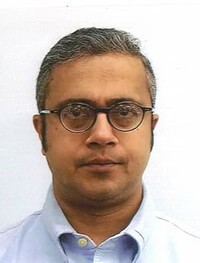The Impact of Flexible Panel-Based Solutions for Pathogen Detection

Title: The Impact of Flexible Panel-Based Solutions for Pathogen Detection
Date: Wednesday, November 7, 2018
Time: 1:00 p.m. ET
Presenter: Ted E. Schutzbank, PhD; Sandeep Mukherjee, PhD; Kelly Li, PhD
Unless otherwise noted, P.A.C.E.™ accreditation will expire six months after the live webinar.
The Benefits of Flexible-Content Syndromic Molecular Testing
While molecular testing methods for pathogen detection have improved sensitivity, specificity, and turnaround time compared to culture-based methods, current molecular tests are limited in their number of set pathogenic markers. Plus, the method is expensive, limited in scalability, and lacks the flexibility required to accommodate the ever-changing needs of detecting pathogen targets.
Panel-based syndromic approaches to pathogen detection, on the other hand, provide many benefits to clinical laboratories. They can test for more targets, reduce the number of samples that need to be sent to other labs, and make testing quicker and easier.
In this P.A.C.E.-accredited Fisher Healthcare webinar, Ted Schutzbank, PhD, will lead a panel discussion on the benefits of using syndromic panels in pathogen detection and how to implement them in your lab. Representatives from labs around the world will share how they implemented the technology, selected specific pathogen targets, and minimized the cost of testing using real-time PCR technology. Plus, you’ll learn how to scale the technology to meet varying throughput requirements — from a single sample to hundreds of samples a day. The discussion will focus on detecting respiratory tract, vaginal tract, and urinary tract microbiota.
Learning Objectives
This webinar will help you:
- Identify the financial and operational benefits of flexible-content syndromic panels
- Discuss how using these panels can help reduce testing costs
- Explain how flexible-content panels can increase lab efficiency, reduce the need for additional testing, and provide more information from each test
Watch On-Demand Download Slides (PDF, 5.5 MB)
This webinar is produced by Whitehat Communications, a provider of continuing education programs in clinical laboratory sciences that has been approved by the ASCLS P.A.C.E. Program. One P.A.C.E. credit hour will be provided for this complimentary, basic-level program.
Presenters

Ted E. Schutzbank, PhD, D(ABMM)
Dr. Schutzbank received his BA in biology from Temple University, his MA in bacteriology from Iowa State University, and his MPhil and PhD in microbiology from Columbia University under the mentorship of Dr. Harry Ginsberg. As a postdoctoral fellow, he worked in the lab of Arnold J. Levine, PhD, at the State University of New York, Stony Brook. His research interests lie in molecular diagnostics as they pertain to infectious disease testing and, more recently, human genomics and precision medicine.
Dr. Schutzbank has worked extensively in the development of real-time nucleic acid amplification assays for the qualitative and quantitative detection of a wide variety of organisms, including bacterial and viral agents of human disease. He has extensive experience in the laboratory diagnostics aspects of HIV/AIDS and was the primary investigator on an NIH grant to implement and staff a full-service pediatric HIV diagnostics laboratory at the Children’s National Medical Center in Washington, D.C.
Over the past 30 years, Dr. Schutzbank has worked in both hospital and private clinical laboratories as well as IVD R&D. He has consulted for several IVD and biotechnology companies, the United States Air Force, and the Venezuelan Ministry of Health. He is a Diplomate of the American Board of Clinical Microbiology and the current Laboratory Director of Quantigen Genomics Services.

Sandeep Mukherjee, PhD
Dr. Mukherjee received his PhD in molecular biology from Jadavpur University in Kolkata, India and performed his fellowship training at the University of Washington in Seattle. He has been the Scientific Director of Women’s Health and Infectious Disease at PathGroup in Nashville, Tennessee since 2014 and has more than 14 years of experience in molecular diagnostics encompassing women’s health, infectious diseases, and oncology.
Dr. Mukherjee’s work involves the experience of clinical diagnostics, including clinical consultancy, technical oversight and management of lab operations, research, method development and validation, quality control and management, and regulatory oversight. Previously, he was the Director of Molecular Diagnostics at Cellnetix and held positions at Micronics, PhenoPath, and the Infectious Disease Research Institute. He has authored many publications in molecular diagnostics.

Kelly Li, PhD
Dr. Li received her PhD in molecular biology from the University of Kentucky and completed her postdoctoral fellowship at the MD Anderson Cancer Center. She is currently the Senior Application Scientist for Healthcare Content and Life Sciences Solutions at Thermo Fisher Scientific and has over 20 years of experience in cancer drug discovery, technology, and application development in the pharma and biotech industries.
Dr. Li has extensive experience in genomic assays — including gene expression, genotyping, copy number, DNA methylation, and molecular pathogen detection — from assay design, validation, and protocol optimization to new technology investigation. Recently, she’s been focused on infectious diseases and has led projects to develop syndromic panels to detect urinary and respiratory tract infections. She has authored publications on and holds patents for anticancer drugs, genomic assays, and molecular detection for pathogens and their controls.